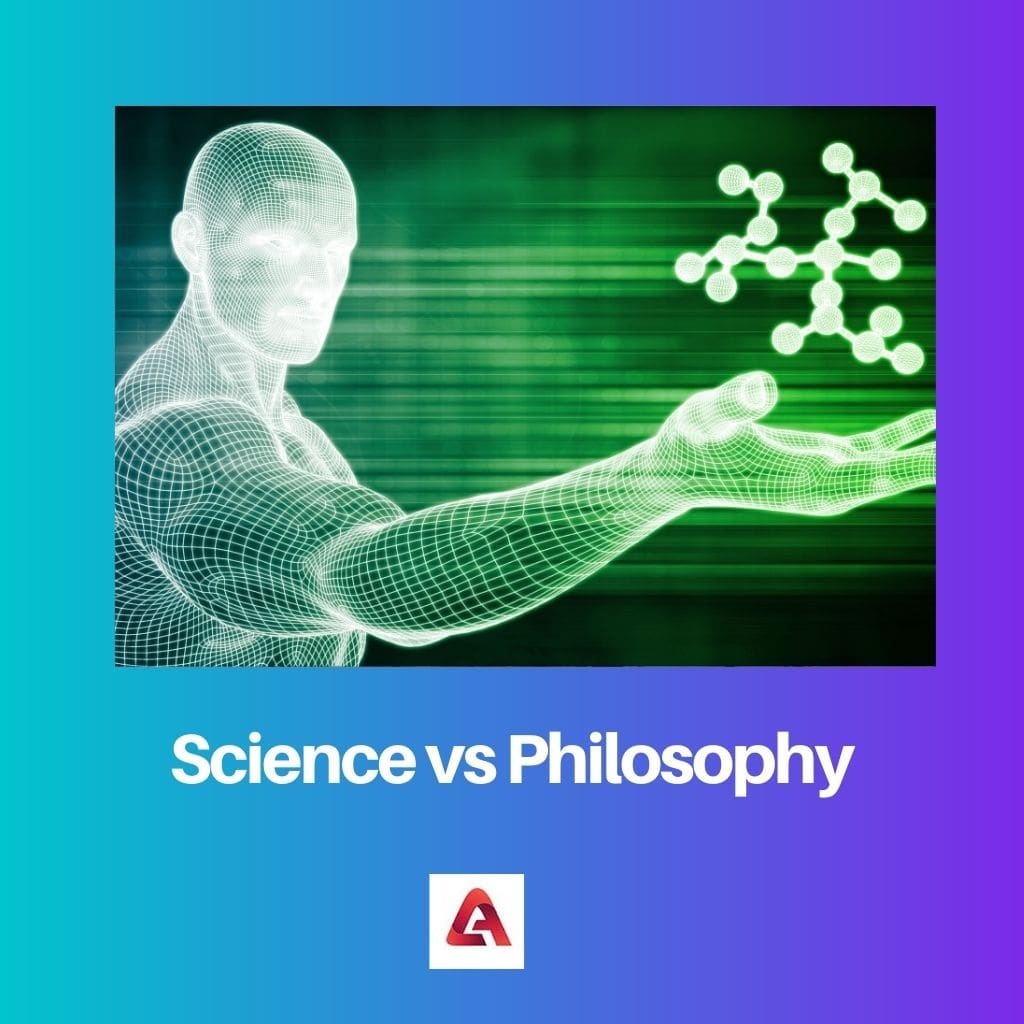The debate between science and philosophy is a fight between humanitarians and scientists that has continued over the decades. Some argue the epistemological facet of science supersedes the dialectical analysis of philosophy and vice versa.
Key Takeaways
- Science is a systematic, empirical approach to acquiring knowledge through observation, experimentation, and the development of testable theories, focusing on the natural world and its phenomena.
- Philosophy is a discipline that examines fundamental questions about the nature of reality, existence, knowledge, ethics, and the meaning of life, using logical reasoning and critical thinking.
- The key differences between science and philosophy are found in their methods, areas of focus, and the nature of the questions they address. Science relies on empirical evidence and philosophy using logical analysis and argumentation.
Science vs. Philosophy
Science is a systematic approach to understanding the natural world based on empirical evidence and testable theories. Philosophy seeks to develop coherent and consistent frameworks to understand the world and our place in it and identify underlying assumptions and values that shape our beliefs and behaviors.

Science also differs from philosophy as science is the branch of activities that test and prove the hypothesis related to natural phenomena. In contrast, philosophy is a broad term relating to the logical reasoning of the nature of our reality, ethics and aesthetics, limitations of our thinking, and many more.
Another difference is in the way each branch was named. Science comes from the Latin word “Scientia,” meaning “knowledge,” whereas philosophy comes from the Greek word “Philosophia,” meaning “love for wisdom.”
Comparison Table
| Parameter of Comparison | Science | Philosophy |
|---|---|---|
| Derived from | The Latin word “Scientia” means “knowledge.” | the word “Philosophia” meaning “love for wisdom.” |
| Basis | deals with hypothesis testing based on factual data | deals with logical analysis based on reason |
| Related areas | related to the natural phenomenon | logical reasoning of the nature of our reality, ethics, and aesthetics, limitations of our thinking, etc. |
| Origin | originally a branch of philosophy, natural philosophy | Emerged from the basic search for knowledge |
| Practitioners are known as | Scientists | Philosophers |
What is Science?
Science is the stream of knowledge that deals with proving a hypothesis related to natural phenomena, and it encompasses empirical reasoning of hypothesis testing.
Science comes from the Latin word “Scientia,” meaning “knowledge,” which was initially found evolving in Egypt and Mesopotamia and was later merged with the stream of natural philosophy emerging in Greece about the same time.
Modern Science is an enterprise that consists of four streams: natural sciences, social science, formal sciences, and applied sciences.
Applied sciences deal with applying the natural and formal sciences combined and consist of medicine and engineering.

What is Philosophy
Philosophy comes from the Greek word “Philosophia,” meaning “love for wisdom.” The origins of this intellectual enterprise are rooted in the basic questions concerning human existence and the realities surrounding us.
Philosophy deals with logical analysis based on reason. It is a broad term relating to the logical reasoning of the nature of our reality, ethics and aesthetics, limitations of our thinking, and many more.
Traditionally, western philosophy in the ancient and medieval eras was highly dominated by religious thoughts and dictions from the church.
The main branches of philosophy include epistemology, metaphysics, mind and language, value theory, logic, science and mathematics, and history of philosophy.

Main Differences Between Science and Philosophy
- Modern Science is an enterprise that consists of four streams: natural sciences, social science, formal sciences, and applied sciences. In contrast, the main branches of philosophy include epistemology, metaphysics, mind and language, value theory, logic, science, mathematics, and the history of philosophy.
- Science originally was a branch of philosophy and was known as “natural philosophy,” whereas philosophy deals with the relationship between our existence and our realities.


The article tackles an age-old debate and provides a comprehensive understanding of the differences between science and philosophy in a very systematic manner, which is praiseworthy.
The article effectively explores the distinctions between science and philosophy, offering a balanced view of both fields. It is a significant contribution to the debate.
The article effectively addresses the key differences between science and philosophy, emphasizing their unique contributions to our understanding of reality and existence.
The distinction between science and philosophy is effectively elucidated, offering readers a broad view of their respective roles in our quest for knowledge. A stimulating piece of writing indeed.
While science is the driving force behind technological innovations, philosophy provides the ethical and moral framework that ensures it is used wisely. A thoughtful read.
Despite their differences, recognizing that both science and philosophy contribute to understanding the world is essential. The distinction between empirical evidence and logical reasoning was effectively conveyed.
While science seeks to examine the empirical aspect, philosophy delves into the fundamental nature of reality and human existence. I found the article to be informative and enlightening.
The debate between science and philosophy is certainly thought-provoking. This article provides a comprehensive understanding of the subject matter and the multifaceted nature of both fields.
The article provides a balanced description of the typical differences between philosophy and science, which encourages us to reflect on the importance of both in the world.
I couldn’t agree more. They are like two sides of the same coin, complementing each other in our pursuit of understanding.
The article carefully outlines the origins and practices of science and philosophy, which is highly informative and enlightening.